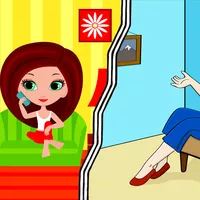Combinar um almoço
安排||
ein Mittagessen vereinbaren|ein|Mittagessen
Arrange||Arrange a lunch
um almoço||
ein Mittagessen vereinbaren
arrange a lunch
Organizar el almuerzo
Organiser un déjeuner
Organizzare un pranzo
ランチの手配
점심 식사 준비하기
Lunch regelen
Organizacja lunchu
Arrangera en lunch
Bir öğle yemeği düzenlemek
安排午餐
安排午餐
安排午餐
A: Bom dia, Teresa, como estás?
|||特蕾莎||
|guten||||
|Good|day|Teresa|how|are you
A: Guten Morgen, Teresa, wie geht es dir?
A: Good morning, Teresa, how are you?
R: Bonjour, Teresa, comment vas-tu?
A:早上好,特蕾莎,你好吗?
Como vai a saúde?
|||健康
|||Gesundheit
How|goes|How's health|health
Wie steht es um die Gesundheit?
How's your health?
Como esta tu salud
Comment va ta santé? <
你最近身体好吗?
B: Olá, Ana!
B(1)||
|Hello|Ana
B: Hallo, Ana!
B: Hi Ana!
B: Bonjour Ana!
B:你好,安娜!
Está tudo bem!
|alles|
Is|everything|
Alles ist gut!
It's all right!
Tout va bien!
一切安好!
E contigo?
|和你一起
|mit dir
E you|"And you?"
Was ist mit Ihnen?
And with you?
Et avec vous? <
并且和你?
並且和你?
A: Comigo também está tudo bem.
|With me||||
A: Auch bei mir ist alles in Ordnung.
A: Everything is fine with me, too.
/ p> R: Tout va bien avec moi aussi.
A:我也一切都很好。
A: 我也很好。
/ p:我也一切都很好。
Olha, queres combinar um almoço um dia destes para conversarmos um bocado?
|||||||un de ces||discuter un peu||
Look|"do you want"|Arrange||lunch|||one of these||"to chat"||a bit
|||||||demnächst||zu sprechen||ein bisschen
看|你想||||||这些||聊天||一会儿
|||||||||||少し
||quedar para|||||||||
Möchten Sie eines Tages ein Mittagessen arrangieren, um eine Weile zu sprechen?
Look, would you like to have lunch one of these days to have a chat?
Mira, ¿quieres organizar un almuerzo uno de estos días para hablar mucho?
Regardez, voulez-vous déjeuner un de ces jours pour discuter?
听着,你想在这几天安排一顿午餐,这样我们就可以聊一聊吗?
嘿,你想约个午餐一起聊聊天吗?
看,您是否想安排這幾天中的午餐時間聊一會兒?
B: Boa ideia!
||主意
||gute Idee
||good idea
B: Good idea!
乙:好主意!
B: 好主意!
Olha, pode ser num restaurante perto de minha casa, têm umas saladas excelentes!
|||||附近|||||一些|沙拉|很棒
||sein||||||Haus|es gibt|||ausgezeichnete
look|it can|be|in a|restaurant|near|||||"some"|salads|excellent
|||1|||||||||
Schau, es könnte in einem Restaurant in der Nähe meines Hauses sein, sie haben einige ausgezeichnete Salate!
Look, it might be in a restaurant near my house, they have great salads!
Regardez, ça pourrait être dans un restaurant près de chez moi, ils ont d'excellentes salades!
看,可能是在我家附近的一家餐馆,他们有一些很棒的沙拉!
Na próxima 4ª feira ao meio dia e meia está bem para ti?
||周|市场||中午|||半||||你
||||||||||||pour toi
|nächsten||Mittwoch|||||||||dir dir
|next|4th (Wednesday)|Wednesday||half past noon|day||half past twelve||||"for you"
Ist der nächste Mittwoch um anderthalb Uhr für dich in Ordnung?
Next Wednesday at 12:30 is it okay for you?
¿Es bueno para ti el próximo miércoles al mediodía y medio?
Mercredi à midi, est-ce que ça vous va?
下周三中午你可以吗?
A: Ok, está combinado!
|好的||好的
|Okay||
|Okay|is|agreed
|||決まり
A: OK, abgemacht!
/ p> A: Ok, it's agreed!
A: ¡Está de acuerdo!
/ p> R: Ok, c'est d'accord!
A:好的,就这样约定了!
Mudei de número de telemóvel, queres tomar nota?
||||numéro de portable|||
I changed||number||Mobile phone number||take|note
||||Handynummer|||
我换了||||手机|||记下
変えた|||||||
cambié|||||||
Ich habe meine Handynummer geändert. Möchten Sie das zur Kenntnis nehmen?
I changed my mobile number, would you like to take note?
J'ai changé de numéro de téléphone, souhaitez-vous en prendre note?
我换了手机号码,你要备注吗?
Pode dar jeito.
||可能有用。
|geben|Kann nützlich sein.
It can help.|give|way
||方法
Es kann nützlich sein.
It can work.
Puede funcionar.
Ça peut marcher.
它可能会派上用场。
它可能會派上用場。
É o 963456729.
It's 963456729. <
是963456729。
B: 963456729.
B : 963456729.
乙:963456729。
Ok, Já apontei.
||我已经记下了
||Ok, j'ai noté.
In Ordnung||Ok, ich habe notiert.
Ok|already|I noted it.
||書きました
OK, ich habe darauf hingewiesen.
Okay, I've already pointed it out.
D'accord, je l'ai déjà signalé.
好吧,我已经指出了。
好吧,我已經指出了。
Então até 4ª!
so|until|4th
Also bis zum 4.!
Then up to 4th!
Puis jusqu'au 4!
那么周三见!
beijinhos!
亲吻
Bisous!
Kisses!
キス
Küsse!
little kisses!
baisers!
吻!
吻!
A: Tchau!
|再见
|Bye
The bye!
Au revoir !
再见!
Beijinhos.
Kisses.
Kisses.
吻。

